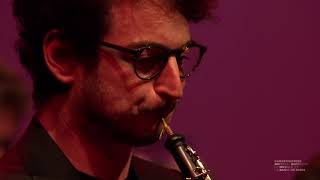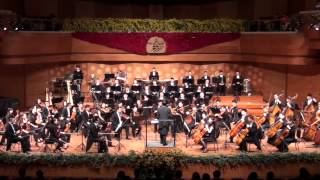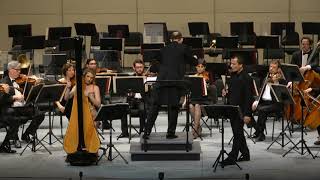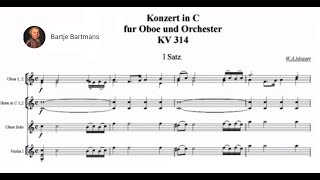Saturday, 17 January, 2026г.
















Где искать: по сайтам Запорожской области, статьи, видео ролики
пример: покупка автомобиля в Запорожье
No Border Concerto. for solo oboe and wind orchestra.
Recording of the premiere in CNSMDP october 19th, 2019.
Composition (2018-2019) : Laurent Durupt
soloist: Olivier Stankiewicz
direction: Philippe Bernold
orchestra: Students of Royal College of London and Conservatoire Supérieur de Musique et de Danse de Paris
0:00 I. Homme, femme, enfant
7:15 II. Machine, animal, fantôme
12:50 III. Berceuse, attente, fuite
"Composing a concerto leads to asking questions such as the possible relationships between an individual and the immediate society in which he evolves, his interactions with his peers, his place among them, his integration or rejection. Such a work today inevitably takes on a particular tone, at the time of the rise of populisms, national folds, and migrations due to climate change and persecutions of all kinds ... My compositional choices are guided by the desire to create musical situations that would echo some sad realities of our contemporary world. The term "No Border" refers to these brave men and women activists, who help whatever the risks, migrant people in difficulty at the borders, providing logistical and legal support. They have all my sincere admiration. The first movement entitled "man, woman, child" could thus be summarized as an "anti-boléro-de-Ravel", if one admits this work as the symbol of a society moving towards a grandiose destiny and of which one would admire, one after another each member for his character and his particular beauty. Here, no grandiose because I want to talk about survival, nor admiration because I want to evoke rejection, hatred, fear, despair. The parade is rather a crowd whose variable density sometimes makes emerge an individual whose trajectory is uncertain, and who struggles not to disappear. The coda of this movement seeks to translate an utopia I want to believe in: the same justice for all men, the equality in the face of freedom of movement, as stated in Article 13 of the Universal declaration of human rights, which we celebrated the 70th anniversary in 2018, when I started working on this concerto. We many times read about "migrant", but rarely about a destiny or even a particular identity. A political hyper-object, he has become so when circumstances have led him to leave his identity to become a wandering shadow whose path is traced at the same time by luck and chance, but also by the policies of welcome, chosen always in response not to his needs but to the expectations of the electoral population he is trying to reach. This migrant is yet a man, a woman or a child, with a name and a story, bruised. The second movement is inspired by ritual music with oral tradition, many of which include a double reed instrument, a cousin of the oboe. From a rudimentary structure, this music is reduced to a minimum: a pulse that is built and deconstructed, an improvised solo that unfolds. Its title "machine, animal, ghost", refers to three mobile entities, for which the notion of border has no reality. This movement is also the result of a utopia: it is so schematic that we could improvise it, close the partitions and take control of our destiny ... but will we do it? would you do it? The finale begins with a pentatonic lullaby, including a quote from the opening of the Berlioz's Scene aux Champs, itself pentatonic. I was struck to see that this range of five sounds, which one associates gladly with Eastern or African music, is used (with the English horn!) in the heart of one of our scores considered as so authentically Western, without any notice. This sweet song (is it a prayer?) Slowly drifts into the nightmare of a long, anguished wait, then a brutal awakening: a race, the escape from imminent danger or the desperate attempt to cross a border… I would like to end this presentation by thanking Philippe Bernold and the students of Cnsmdp and the Royal College, and especially to my dear friend Olivier Stankiewicz, whose incomparable talent was an invaluable source of inspiration and joy throughout this fascinating project he initiated. "
Похожие видео
Мой аккаунт


 У вашего броузера проблема в совместимости с HTML5
У вашего броузера проблема в совместимости с HTML5


